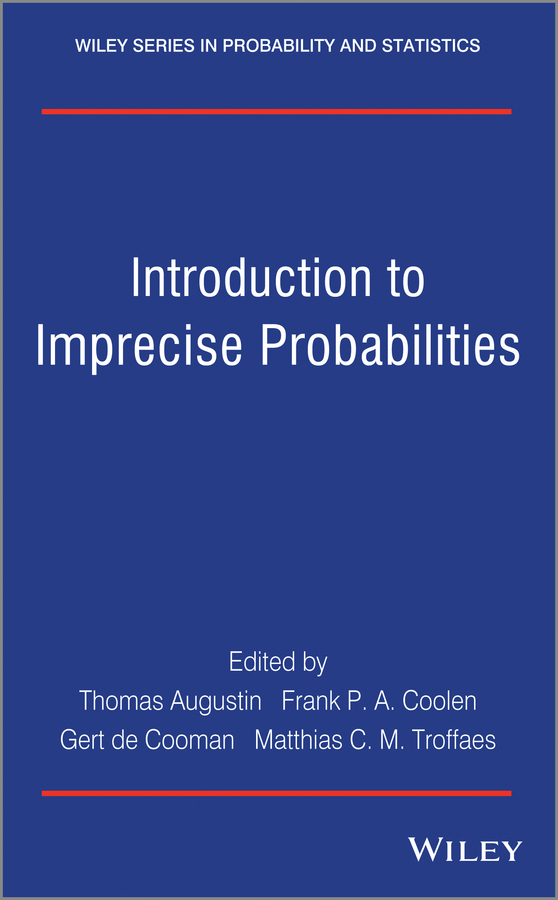Электронная книга: Thomas Augustin «Introduction to Imprecise Probabilities»

|
In recent years, the theory has become widely accepted and has been further developed, but a detailed introduction is needed in order to make the material available and accessible to a wide audience. This will be the first book providing such an introduction, covering core theory and recent developments which can be applied to many application areas. All authors of individual chapters are leading researchers on the specific topics, assuring high quality and up-to-date contents. An Introduction to Imprecise Probabilities provides a comprehensive introduction to imprecise probabilities, including theory and applications reflecting the current state if the art. Each chapter is written by experts on the respective topics, including: Sets of desirable gambles; Coherent lower (conditional) previsions; Special cases and links to literature; Decision making; Graphical models; Classification; Reliability and risk assessment; Statistical inference; Structural judgments; Aspects of implementation (including elicitation and computation); Models in finance; Game-theoretic probability; Stochastic processes (including Markov chains); Engineering applications. Essential reading for researchers in academia, research institutes and other organizations, as well as practitioners engaged in areas such as risk analysis and engineering. Издательство: "John Wiley&Sons Limited"
ISBN: 9781118763131 электронная книга Купить за 9188.33 руб и скачать на Litres |
Другие книги схожей тематики:
| Автор | Книга | Описание | Год | Цена | Тип книги |
|---|---|---|---|---|---|
| Terje Aven | Foundations of Risk Analysis | Foundations of Risk Analysis presents the issues core to risk analysis– understanding what risk means, expressing risk, building risk models, addressing uncertainty, and applying probability models… — John Wiley&Sons Limited, электронная книга Подробнее... | 6712.08 | электронная книга | |
| Haigh John | Probability | Making good decisions under conditions of uncertainty - which is the norm - requires a sound appreciation of the way random chance works. As analysis and modelling of most aspects of the world, and… — Oxford University Press, A Very Short Introduction Подробнее... | 2012 | 493 | бумажная книга |
| Haigh John | Probability | Making good decisions under conditions of uncertainty - which is the norm - requires a sound appreciation of the way random chance works. As analysis and modelling of most aspects of the world, and… — OXFORD UNIVERSITY PRESS, A Very Short Introduction Подробнее... | 2012 | 674 | бумажная книга |
См. также в других словарях:
probability theory — Math., Statistics. the theory of analyzing and making statements concerning the probability of the occurrence of uncertain events. Cf. probability (def. 4). [1830 40] * * * Branch of mathematics that deals with analysis of random events.… … Universalium
language — /lang gwij/, n. 1. a body of words and the systems for their use common to a people who are of the same community or nation, the same geographical area, or the same cultural tradition: the two languages of Belgium; a Bantu language; the French… … Universalium
Scientific method — … Wikipedia
List of fallacies — For specific popular misconceptions, see List of common misconceptions. A fallacy is incorrect argumentation in logic and rhetoric resulting in a lack of validity, or more generally, a lack of soundness. Contents 1 Formal fallacies 1.1… … Wikipedia
Fuzzy logic — is a form of multi valued logic derived from fuzzy set theory to deal with reasoning that is approximate rather than precise. Just as in fuzzy set theory the set membership values can range (inclusively) between 0 and 1, in fuzzy logic the degree … Wikipedia
Quantum mind–body problem — The quantum mind–body problem refers to the philosophical discussions of the mind–body problem in the context of quantum mechanics. Since quantum mechanics involves quantum superpositions, which are not perceived by observers, some… … Wikipedia
